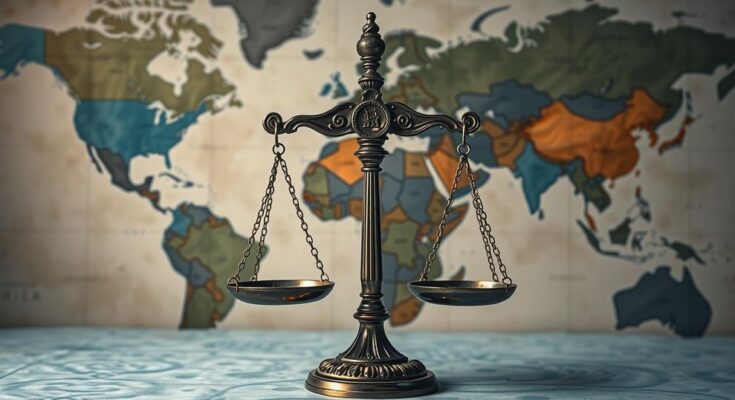Human Rights Watch configured Ethiopia’s human rights situation in 2024 as dire due to rampant violence and governmental repression. The report highlighted serious abuses from military forces and militias, particularly in Amhara region. Many journalists face censorship or exile, with civil society organizations undergoing harassment and suspension, exacerbating the human rights crisis.
Human Rights Watch (HRW) declared Ethiopia’s human rights conditions in 2024 as “dire,” attributing this to ongoing conflicts, restrictions on civil society, and widespread impunity for human rights abuses. The annual report detailed severe violations perpetrated by government forces, militias, and armed non-state groups across various regions, particularly in conflict-affected areas.
The Amhara region emerged as a significant concern, with HRW noting that both government forces and Fano militias engaged in what it termed “war crimes.” HRW cited findings from the UN Office of the High Commissioner for Human Rights (OHCHR), emphasizing acts such as extrajudicial killings, sexual violence, and torture perpetrated by Ethiopian military forces against civilians.
An alarming event occurred on January 29, where HRW reported that Ethiopian military units summarily executed numerous civilians in the town of Merawi. Additionally, Fano militias were implicated in various violent acts, including civilian killings and unlawful detentions, exacerbating the humanitarian crisis in Amhara, where escalating violence led the UN to reconsider its relief operations after the deaths of eight aid workers in 2024.
In Tigray, HRW documented continued abuses by Eritrean forces, primarily focusing on sexual violence and looting. There was a notable uptick in kidnappings across the country, with over 100 individuals, including many university students in Oromia, reported abducted in July. The report also highlighted a state of emergency implemented in February that extended until June, facilitating mass arrests targeting journalists and opposition members.
Amnesty International noted the detention of several hundred people in Amhara later in the year, including notable figures in law enforcement and academia. The media landscape remained constricted, with journalists forced into self-censorship or exile. Since 2020, 54 journalists sought refuge abroad due to government repression.
Civil society organizations faced increased governmental pressure, with instances of harassment reported against the Ethiopian Human Rights Council (EHRCO) staff. In November, several organizations, including the Center for the Advancement of Rights and Democracy (CARD), were suspended by authorities, reflecting a broader trend of suppression.
Despite the government adopting a transitional justice policy in April, HRW criticized it as insufficient, citing the lack of transparency and independent oversight in accountability efforts. Furthermore, the organization criticized Ethiopian authorities for denying allegations of abuses while noting the international community’s indifference towards these violations.
The human rights situation in Ethiopia has been a growing concern due to ongoing conflicts, governmental repression, and the deterioration of civil liberties. Armed confrontations, particularly in regions like Amhara and Tigray, have led to serious human rights violations, including extrajudicial killings and sexual violence. The restrictions on civil society and media have further aggravated the humanitarian crisis, while the government’s attempts at transitional justice remain criticized for their inadequacies.
In conclusion, the report by Human Rights Watch underscores a grave human rights crisis in Ethiopia characterized by widespread violence, repression of civil society, and lack of accountability for abuses. The alarming situations in conflict-ridden regions such as Amhara and Tigray illustrate the urgent need for international attention and intervention to address these ongoing violations.
Original Source: addisstandard.com




